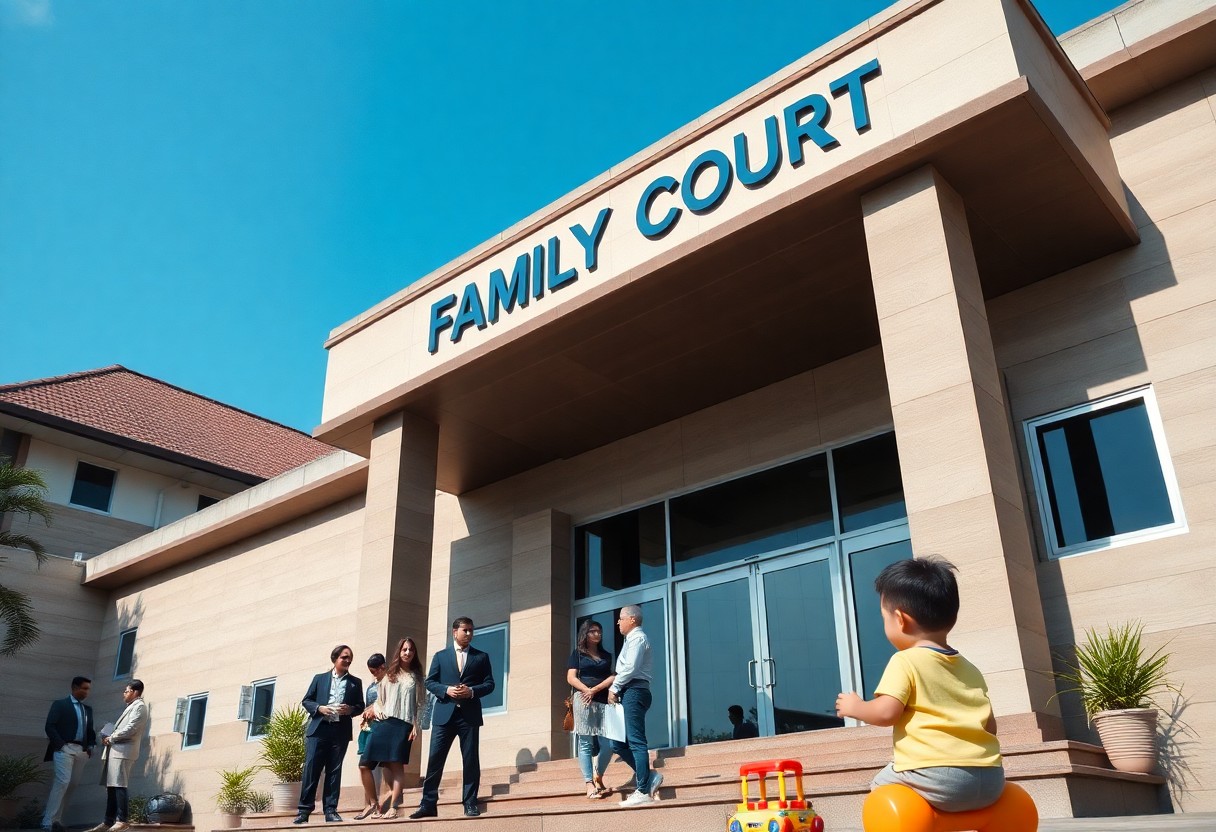Crafting a Mutual Agreement: The First Step to Divorce
Understanding Mutual Agreements
In a divorce process where both parties agree, crafting a mutual agreement is crucial. This document outlines how you and your spouse intend to settle matters such as asset division, child custody, and financial obligations. Specific details, such as who retains the family home or how child support will be calculated, need to be clearly defined to avoid future disputes. Engaging a mediator can facilitate this conversation, ensuring that both your interests are well-represented and enhancing the chances of a swift resolution.

Key Takeaways:
- Both parties must file a joint petition for divorce.
- Grounds for divorce can include separation for at least two years.
- Mutual consent can facilitate a faster and less contentious process.
- Financial agreements should be reached prior to filing.
- Child custody arrangements need to be established amicably.
- Parties can opt for mediation to resolve disputes.
- The divorce decree can typically be processed within a few months if uncontested.

Navigating the Legal Landscape
Understanding the legal landscape in Malaysia during an amicable divorce is important for a smooth process. You and your spouse will need to familiarize yourselves with relevant laws, procedures, and requirements set forth by the Malaysian Family Law system. This includes knowing how to file the necessary documents, potential fees involved, and timelines for the divorce proceedings. Legal advice may be required for specific situations or concerns, ensuring compliance and safeguarding your rights.
Required Documentation for an Amicable Divorce
Your divorce requires specific documentation to facilitate a smooth process. Essential forms include the Joint Petition for Divorce, which outlines mutual agreement on divorce terms, and your Marriage Certificate as proof of the union. Additional documents may be needed, such as affidavits supporting your claims regarding settlements, child custody, and asset division. Ensure that all paperwork is accurately filled in to avoid delays.
Understanding the Role of the Family Court
The Family Court serves as the judicial body overseeing divorce cases in Malaysia, especially in amicable situations. It reviews the Joint Petition for Divorce and ensures that the terms of your mutual agreement are fair and legally sound. The court focuses on safeguarding the welfare of any children involved and validating the distribution of assets, providing a formal setting to finalize your divorce amicably.
The Family Court’s role extends beyond mere approval of documents; it ensures that both parties have fully understood their rights and obligations. During proceedings, the court may offer recommendations regarding child support, custody arrangements, and equitable division of property, striving for a resolution that minimizes conflict and upholds the best interests of all parties involved. A court hearing typically follows the filing of the petition, during which the judge will confirm the mutual consent and finalize the divorce.
Financial Affairs: Dividing the Assets
In an amicable divorce, addressing financial affairs involves a fair distribution of assets acquired during the marriage. You and your spouse will need to identify all marital assets, including property, savings, and investments, while factoring in contributions made by both parties. The aim is to reach an agreement that reflects a balanced division, ensuring that both individuals can move forward independently.
Equitable Distribution vs. Community Property
Malaysia follows an equitable distribution model rather than community property, meaning assets are divided based on fairness rather than a strict 50/50 split. Factors like each spouse’s financial and non-financial contributions, the duration of the marriage, and the needs of any children may influence the final decision. You should negotiate based on these aspects to reach a resolution satisfactory to both parties.
Addressing Financial Responsibilities and Debts
Managing financial responsibilities and debts during a divorce is necessary to prevent future disputes. This encompasses outstanding loans, credit card debts, and mortgages. You need to determine who will assume responsibility for each debt, considering both spouses’ financial situations. Clear agreements on debt liabilities can protect your financial health post-divorce.
Ignoring financial responsibilities can lead to complications later. For instance, if both you and your spouse share a joint credit card debt, you remain liable for repayment even after the divorce. Establishing a plan on how to handle joint debts—whether through shared liability or allocating them clearly—helps mitigate risks and ensures both parties are protected. In some cases, settlements might allow for one party to assume specific debts in exchange for other assets, making communication and negotiation vital.

Child Custody and Support: Prioritizing Children’s Welfare
Ensuring the welfare of children during a divorce is paramount. Both parties need to collaboratively decide on custody arrangements that reflect the children’s best interests, considering their emotional and physical needs. Your focus should be on maintaining stability, routine, and a nurturing environment for your children, thereby fostering their well-being amidst the changes in family dynamics.
Approaches to Child Custody Arrangements
Child custody arrangements can take various forms, including joint custody, where both parents share rights and responsibilities, or sole custody, where one parent has primary authority. You may want to explore flexible arrangements that cater to your children’s needs, ensuring each parent plays a meaningful role in their upbringing. Consideration of factors like work schedules and children’s preferences can enhance these arrangements.
Determining Child Support Obligations
Child support obligations often depend on both parents’ income, the child’s needs, and the custody arrangement. Typically, the non-custodial parent pays child support, focusing on basic necessities such as education, healthcare, and daily living expenses. Accurate financial disclosures from both parties will streamline this process, ensuring that support levels are fair and sustainable for the children’s welfare.
Determining child support obligations involves analyzing both parents’ financial responsibilities and the children’s specific needs. You’ll need to assess factors such as housing, food, clothing, education, and healthcare costs. In Malaysia, the *Child Support Calculator* can provide an estimate based on the non-custodial parent’s income and the number of dependents. This structured approach helps formalize agreements, reducing disputes over payments and ensuring children receive adequate support throughout their upbringing.
The Finalization of Divorce: What to Expect
Your finalization of the divorce marks the official end of your marriage. This stage involves filing necessary documents for a decree nisi, which may later convert to a decree absolute, thus formalizing your divorce. You can expect the court to review your agreement on assets, child custody, and support before granting you a divorce. Once the decree absolute is issued, you are legally single, allowing you to move forward with your life independently.
The Court Proceedings: Timeline and Process
Post-Divorce Considerations and Legal Obligations
After the divorce is formalized, you must address any outstanding legal obligations, including the execution of property transfers, updating wills, and ensuring child support payments are established. Both parties should follow the terms stipulated in the divorce decree to avoid future legal complications.
Fulfilling your post-divorce obligations is vital for ensuring a smooth transition into your new circumstances. Properly executing agreements related to child custody, visitation, and financial support will prevent misunderstandings and conflicts. You may need to make adjustments as circumstances change, such as income variations or relocation. Keeping records of payments and communications can help protect your rights and uphold the terms of your divorce settlement. Finally, consulting with a legal professional can guide you through any necessary modifications and ensure compliance with your legal responsibilities.
FAQ
Q: What is the first step in the divorce process in Malaysia if both parties agree?
A: The first step is to file a petition for divorce at the relevant court. You need to complete the necessary forms and submit them along with the statutory declaration confirming the agreement.
Q: Is it necessary to attend the mediation process?
A: Yes, attending mediation is often required to encourage amicable resolutions, especially regarding child custody and distribution of assets.
Q: How long does the divorce process take if both parties agree?
A: If both parties agree, the divorce process can generally be completed within 3 to 6 months, depending on the court’s schedule.
Q: Do we need a lawyer to file for divorce?
A: While it is not mandatory to have a lawyer, hiring one is advisable to ensure that all paperwork is completed correctly and to navigate any legal complexities.
Q: What documents are required for an uncontested divorce?
A: Required documents include the divorce petition, marriage certificate, identity cards of both parties, a statutory declaration of agreement, and any relevant financial documents.
Q: How is child custody determined in an agreed divorce?
A: Child custody is determined based on the mutual agreement between the parties, focusing on the welfare and best interests of the child. This agreement must be formalized in the court.
Q: What happens after the divorce petition is filed?
A: After filing the petition, a court date will be set for hearing. Both parties must attend, and if all is in order, the court will grant a divorce decree nisi, which later becomes a decree absolute.
